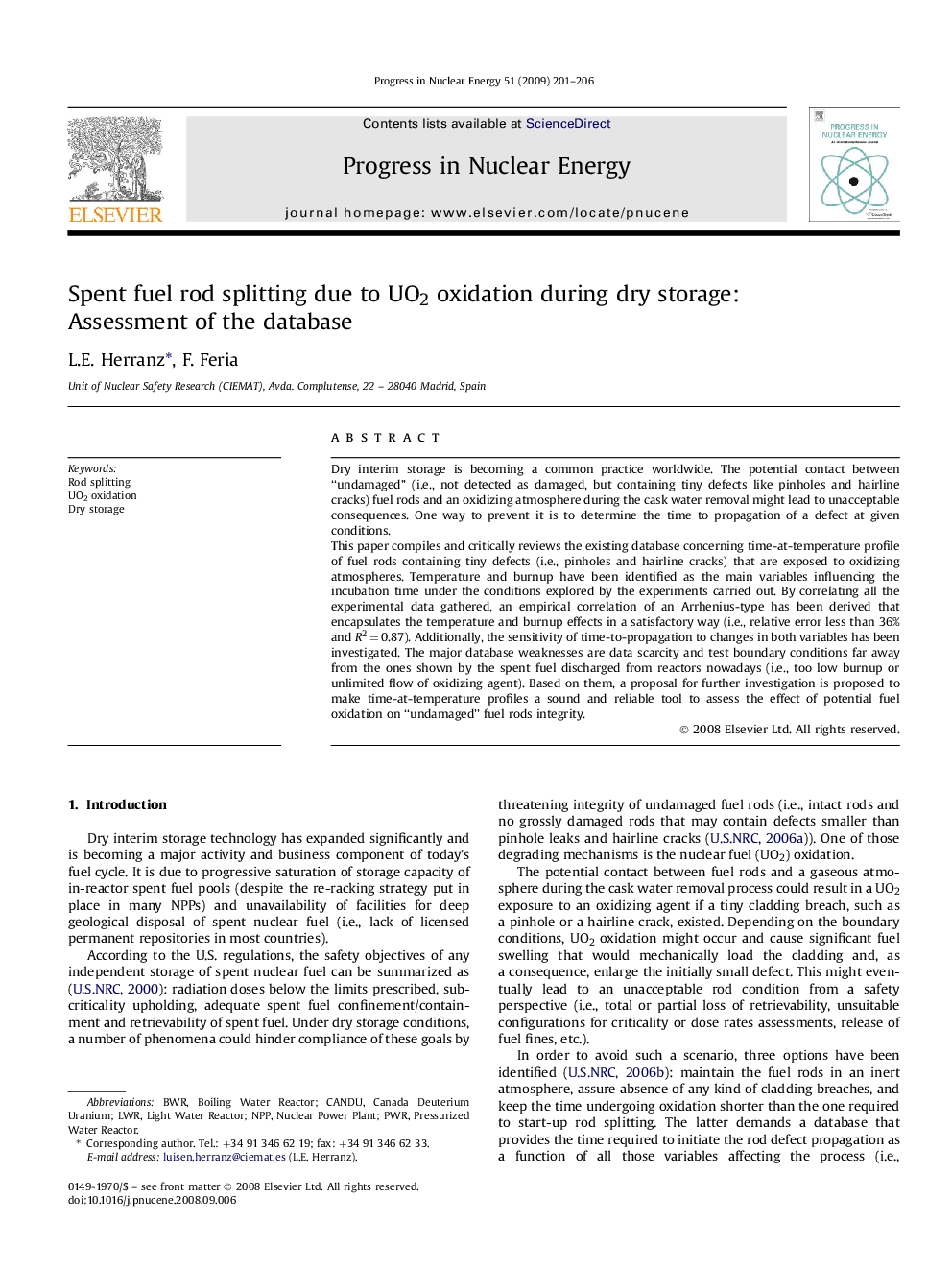| کد مقاله | کد نشریه | سال انتشار | مقاله انگلیسی | نسخه تمام متن |
|---|---|---|---|---|
| 1741117 | 1017376 | 2009 | 6 صفحه PDF | دانلود رایگان |

Dry interim storage is becoming a common practice worldwide. The potential contact between “undamaged” (i.e., not detected as damaged, but containing tiny defects like pinholes and hairline cracks) fuel rods and an oxidizing atmosphere during the cask water removal might lead to unacceptable consequences. One way to prevent it is to determine the time to propagation of a defect at given conditions.This paper compiles and critically reviews the existing database concerning time-at-temperature profile of fuel rods containing tiny defects (i.e., pinholes and hairline cracks) that are exposed to oxidizing atmospheres. Temperature and burnup have been identified as the main variables influencing the incubation time under the conditions explored by the experiments carried out. By correlating all the experimental data gathered, an empirical correlation of an Arrhenius-type has been derived that encapsulates the temperature and burnup effects in a satisfactory way (i.e., relative error less than 36% and R2 = 0.87). Additionally, the sensitivity of time-to-propagation to changes in both variables has been investigated. The major database weaknesses are data scarcity and test boundary conditions far away from the ones shown by the spent fuel discharged from reactors nowadays (i.e., too low burnup or unlimited flow of oxidizing agent). Based on them, a proposal for further investigation is proposed to make time-at-temperature profiles a sound and reliable tool to assess the effect of potential fuel oxidation on “undamaged” fuel rods integrity.
Journal: Progress in Nuclear Energy - Volume 51, Issue 2, March 2009, Pages 201–206